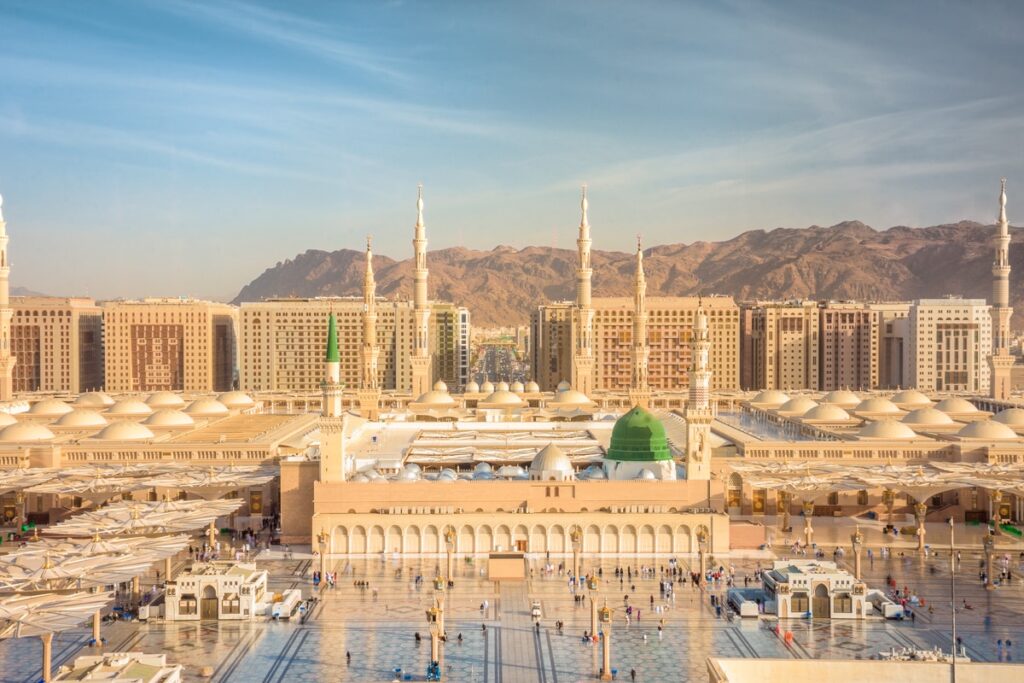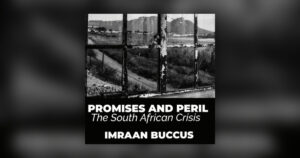
[Shutterstock]
There is a growing interest in spreading waqf culture in South Africa and globally, writes Zeinoul Abedien Cajee, the founding CEO of AWQAF SA.
The beginnings of waqf culture can be traced back to the City-State of Madina Munawarrah – The City of Nur and Light. We note from historical records that the Prophet Muhammad (S) already made waqf donations in the form of date orchards. Besides the Prophet (S), many of his righteous sahaba also donated whatever they could as waqf, under his extraordinary advice. In a hadith that is oft quoted that all our good deeds come to an end when we pass on except three: sadaqah jaariyah (waqf)(ongoing charity) that we donate, beneficial knowledge that we leave behind and pious children that we bring up and who pray for us long after we are gone. This advice set the tone for waqf making and a pervasive waqf culture for centuries to this day.
What is culture? There are many definitions of culture. Commonly (and perhaps not comprehensive enough) culture embodies our religion, morals, arts, thoughts, customs, laws, habits, beliefs, attitudes, language, traditions, values, food, history, and way of life. When an act of doing is widespread in society, and we are part of that act of doing, then we are in fact participating in that culture. For example if a large part of society is using facebook, instagram, youtube, or whats app, one may say that social media is part of our everyday culture. Or a community that is given to read books extensively; we would have a reading culture. There could be negative aspects to culture as well, eg immoral behavior, corruption, gender violence, women and child abuse etc. Other positive aspects of culture may be that the community is a charitable community, or a law abiding community, or deeply entrenched in business. So culture can have multiple meanings and connotations.
Waqf culture is when waqf making and donating becomes part of our everyday living and doing. It becomes second nature, part of everyday culture. A practice or tendency that becomes ingrained in one’s character and everyday life. So at every turn and opportunity, we will be creating more and more waqfs. Waqf culture must become embedded in our thoughts and our being, in our attitudes and our knowledge about the world starting from ourselves, our families, our communities, our neighbourhoods, our neighbors, our community, our country, our environment and humanity. When this happens, civil society is transformed into an empowered entity.
There is a growing interest in spreading waqf culture in South Africa and globally . The question to ask is why and why now? The simple and most compelling reason is that it was the practice (sunnah) of the Prophet Muhammad (s), the founder of the waqf system. Being followers of the noble Prophet (s) we are obliged to follow his noble practices and the guidance afforded to the generations that follow, now and forever. And secondly to understand the wisdom behind the establishment of waqf as an institution within the broader Islamic framework and Maqasid al Shariah (the higher intents, aims, and objectives of the Shari’ah). And now mainly because it’s an era of revival and our duty to establish Islam as a way of life and thereby establish institutions that will foster the practice of Islam in its totality. Waqf is one such institution. Waqf is about community capital resource mobilization, self-reliance, and empowerment for the sustainable funding and support of community development projects and programmes, including poverty alleviation and humanitarian support.
The next question is how do we establish and spread waqf culture where people give of their wealth, time, energy, skills, expertise, talents, and possessions for the sake and pleasure of Allah. This is where the hard work begins. Mass diffusion is needed. Since many of us are largely ignorant about this amazing institution of Waqf. We not only have to learn about it but we have to embrace it with love, passion, and commitment. At the end of the day, it is indeed largely dependent on each individual and each individual’s heart to give and to part with one’s possessions – physical, monetary, or personal – for the love and pleasure of Allah.
Each of us has a duty to gain and spread knowledge about the waqf system. We need to use all means available. We need to learn it in our masjids, schools, madressahs, darul ulooms, universities, homes, businesses, online – in formal and non formal settings. As individuals we have to teach it to everyone around us – our social networks – starting with ourselves, our spouses, parents, siblings, children, friends, colleagues, neighbours, business associates et al. Our ulama need to embrace the concept and teach its historical, developmental and civilizational role in all our institutions. Our universities must teach the establishment, shari’ah models, history, case studies, legal requirements, tax compliance, donor tax benefits, governance, financial administration, investment modes, community development & humanitarian role, economic and civilizational role and development, and a host of other topics related to waqf leading to masters and PHD studies.
Lastly we need to encourage every individual , family, organisation and institution to place the idea of waqf making high up on our agendas so that we are able to create and spread the waqf culture that made Islamic Civilisation great. We too can contribute to building Islamic Civilisation in Southern Africa over the next decades and centuries inshallah. Let’s do it.
Zeinoul Abedien Cajee [ CA (SA) MEd] is the founding CEO of AWQAF SA.


